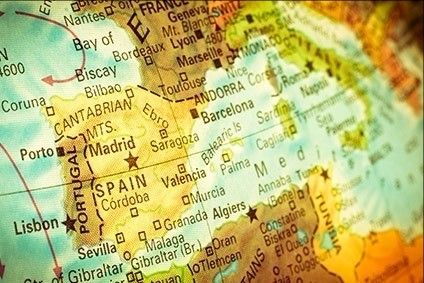
Spain’s food manufacturing body has called on the country’s government to offer more help in supplying personal protective equipment (PPE) to companies that have stayed open during the Covid-19 pandemic.
The Federación Española de Industrias de Alimentación y Bebidas (FIAB) is also urging the Spanish government to offer financial packages for food manufacturers supplying restaurants and cafes closed by the lockdown and offer companies protection against price gouging by some suppliers.

Discover B2B Marketing That Performs
Combine business intelligence and editorial excellence to reach engaged professionals across 36 leading media platforms.
Mauricio García de Quevedo, director general of FIAB, told just-food companies and workers in the food and beverage industry “have reacted in an exemplary manner; they have never stopped supplying the public with the products they need, and maintain the variety, quality and safety that characterise our products”, adding they have done so “following all the protocols and recommendations established by the ministry of health”.
However, to continue to do so, the Spanish government needs to help by supplying more PPE to manufacturers “to protect the health of the workers”, de Quevedo said.
Meanwhile, although the manufacturing sector has yet to suffer from the labour shortages that have faced Spanish farms, FIAB has established a monitoring committee with the main trade union organisations, de Quevedo said. However, with the disease continuing to spread, he is concerned about future labour supplies and wants government to be ready to help, if there is a problem.
“To maintain a viable future, we believe that it’s important to provide greater legal guarantees,” he insisted, including more details on how food manufacturers might apply furloughs for their staff, should companies be forced to contract production because of supply chain issues, de Quevedo explained.

US Tariffs are shifting - will you react or anticipate?
Don’t let policy changes catch you off guard. Stay proactive with real-time data and expert analysis.
By GlobalDataThe FIAB chief also raised concerns hauliers and other transport operators may push up fees. One way to protect the industry, he suggested, would be for the government to increase truck loads to 44 tonnes (up from the current maximum of 40 tonnes) to increase the merchandise delivered per load.
As for the food producer supply chain, despite the government’s liberalisation of employment rules for farmers, de Quevedo still noted “with some concern the way raw material supply markets at global and national level are developing”, with FIAB proposing strengthening the monitoring of producer markets and “initiatives and incentives to bolster farm, picking and cultivation”.
Meanwhile, another pressure on some producers and processors has been a fall in sales of more upmarket food items, mainly because of closures within the hospitality sector. The fish industry – particularly large in Spain – has been hit hard, being forced to sell gourmet items such as Spanish Dénia red shrimp at half price.
Producers of frozen fish are also reporting cash flow and distribution challenges, both for local and export markets, with many fishing fleets anchored in ports nationwide. Spanish fish industry association FEDEPESCA has said 50% of the fishing industry is idle, although distribution networks for fish that is being caught and processed are operating normally.
On the retail side, grocers have sought to improve their online platforms. Supermarket group Dia has teamed up with delivery app Glovo, which guarantees delivery within an hour of an order being made. Platforms such as Manzaning and Aprop, which deliver goods to consumers from small local shops and farmers’ markets, have said they have witnessed an 800% increase in orders. With all its physical stores closed by the government (because they are largely non-food) and most of its staff facing redundancy, Spain’s department store giant El Corte Inglés has speedily invested in creating a standalone website to sell its food lines.
Overall food purchases in Spain boomed initially following the imposition of a state of emergency, rising 29.8% in the first week compared to the same period in the previous year, according to the ministry of agriculture, fisheries and food, although this surge has since subsided. Impulse buying has varied from region to region, being especially acute in Madrid, the epicentre of the pandemic in Spain, with staples such as dried legumes and flour disappearing from shelves.
However, Asedas, the Spanish Association of Distributors, Supermarkets and Self-Service Stores, has stressed retailers and their distributor and manufacturer partners have responded to panic buying by replenishing sold-out items within one or two days. “Spain has one of the most efficient food distribution networks in Europe and is perfectly capable of dealing with extraordinary situations such as this one,” it said.





